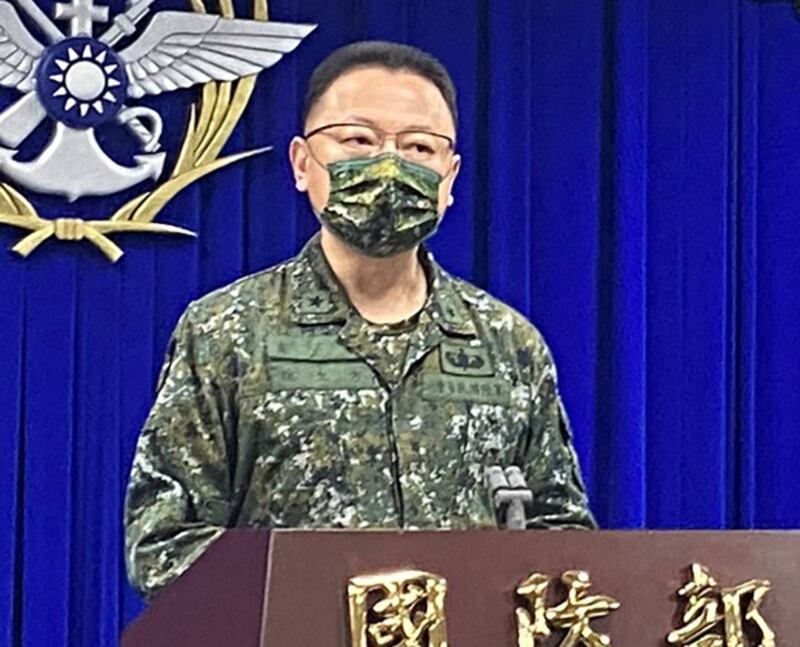Taiwanese authorities have arrested a top diabolo coach and four military veterans on suspicion of recruiting spies for China.
Lu Chi-hsien, a well-known expert in diabolo, a game in which a two-headed top is thrown and caught on a string stretched between two sticks, was recruited by Chinese intelligence officers, according to Taipei Deputy Head Prosecutor Tsai Wei-yi.
They offered him money to use his connections and friends still in active service to obtain classified materials and recruit others to form a spy network.
Lu's activities appeared "unusual," and attracted the attention of the island's national security operatives, Tsai said, adding that Lu had trawled pawnshops, money lenders and loan sharks near military bases looking for personnel who desperately needed money.
In addition to Lu’s arrest on July 19, prosecutors also arrested two former military personnel identified only as Lee and Chang and two women both surnamed Lin. They are suspected of "contacting, enticing and recruiting" military personnel from April last year to obtain military intelligence in contravention of the National Security Act.
Tsai said the case shows that China has shifted the focus of its spying efforts against Taiwan to the "enticement" of lower-ranking personnel in need of cash.
Lu had recruited "more than 10" people to his network, and instructed them to gather classified documents or any other confidential information they could find, Tsai said.
Skipped out on sentence
He said Lu had used his position at the Republic of China Diabolo Federation, the title of which refers to the 1911 sovereign state that still controls Taiwan, Penghu, Kinmen and Matsu, to run a number of fraudulent operations, for which he was handed a five-year jail term.
But Lu failed to turn up to begin serving his sentence, and had been on the wanted list since March.

Defense ministry spokesman Sun Li-fang said the case was referred to national security investigators following concerned reports from soldiers and officers, and is now an active judicial case.
"We have seen many cases of espionage by the Chinese Communist Party being actively reported by Taiwan's soldiers and officers in recent years, which shows that our counterintelligence education has been yielding results," Sun told Radio Free Asia.
"We will be strengthening a number of security control mechanisms in future ... while the national security team will continue to uphold the spirit of mutual assistance and cooperation [with the armed forces] to jointly counter Chinese Communist Party infiltration," he said.
Ruling Democratic Progressive Party (DPP) lawmaker Wang Ting-yu said soldiers in financial difficulties had been specifically targeted by China's spying operations.
"In the past we had beautiful women selling betel nut outside air force bases, or specific people recruiting from the army to steal information," Wang said. "Now, they are using soldiers and officers who may be having money troubles."
"Both the armed forces and the national security team must pay attention to what is happening here," he said, calling for a heavy sentence if the suspects are convicted.
All-around infiltration
Su Tzu-yun, military analyst at Institute for National Defense and Security Research, a Taiwanese government-funded think tank, said Chinese spies have penetrated every aspect of life in Taiwan.
"Beijing recruits its spies ... using handsome men and beautiful women for honey traps, through financial infiltration and getting ahold of gossip about someone, and by ... threats, for example, photographing someone in a particular place at night in China," Su said.
"China's infiltration of Taiwan can be said to be all-round, top to bottom."
He also mentioned the use of betel nut sellers and food stalls at the gates of military bases as a favored way for Chinese agents to gather information.
"People in the camps come out to buy stuff, and the Chinese Communist Party contacts them and infiltrates that way," he said.
He said the island has made some progress in counterintelligence in recent years, however.
In February, a court in the southern city of Kaohsiung jailed ex-colonel Hsiang Te-en for seven-and-a-half years for spying for China, while prosecutors in the city indicted a retired air force captain and six active air force and navy officers on the same charge.
In August 2020, prosecutors indicted three former legislative aides for trying to access President Tsai Ing-wen's medical records on behalf of China's state security police.
Translated by Luisetta Mudie .
